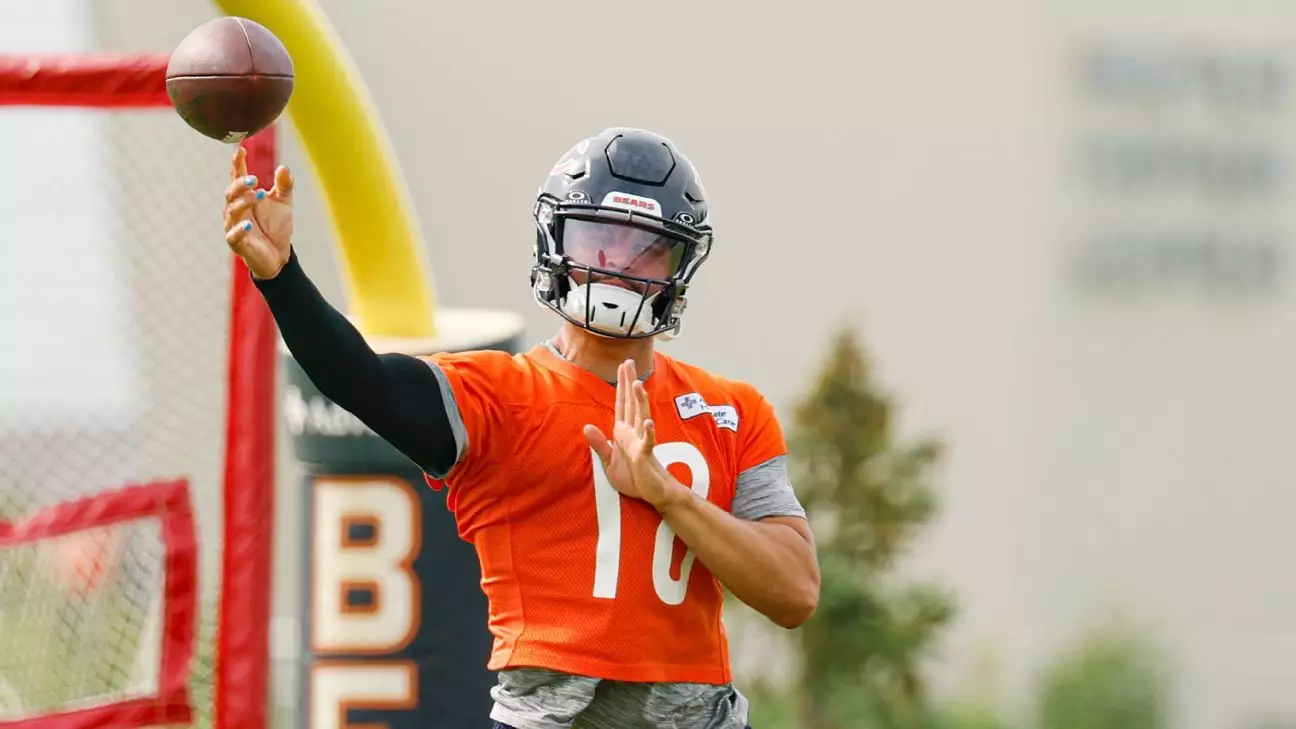Caleb Williams stands at a crossroads of expectations, yet he boldly dismisses the idea that pressure is a burden. In a sports culture obsessed with mental toughness and resilience, Williams’ declaration that “pressure’s not a thing for me” is both refreshing and provocative. It signals a mindset that refuses to be shackled by external noise, a stance that resonates strongly in a league where public opinion can elevate or crush careers overnight. Rather than perceiving the weight of his high draft stock or his lofty goals as oppressive, he views them as privileges—a perspective that reframes challenge as opportunity rather than burden.
This attitude, while admirable, invites scrutiny. The assumption that one can entirely detach from external pressures underestimates the psychological complexity athletes face. Yet, Williams’ conviction suggests an innate confidence, a belief that internal focus and resilience can neutralize external expectations. His approach underscores an emerging philosophy in leadership—where mental sovereignty is prioritized over external validation. If maintained, this mental stance could become a blueprint for other players seeking to carve out their unique paths amid relentless scrutiny.
Setting Audacious Goals as a Reflection of Self-Belief
Williams’ ambitions — surpassing 4,000 passing yards and maintaining a 70% completion rate — are aggressive benchmarks for a young quarterback still in development. His rookie season, with 3,541 yards, was an impressive feat, placing him among the franchise’s best ever in a single season. Rather than resting on those laurels, Williams’ decision to set higher targets signals a mindset that refuses complacency, emphasizing continuous growth and excellence.
Beyond mere statistics, these goals also serve as a statement of intent: Williams is positioning himself as a cornerstone of the franchise’s future. The fact that he openly discusses his aspirations in the media demonstrates a level of confidence and transparency that can inspire teammates and fans alike. However, the real question lies not in the goals themselves, but in how Williams sustains the focus and discipline necessary to reach them. Goals are meaningless without strategic effort, mental perseverance, and a willingness to learn from failure—areas in which his early training camp performance suggests potential.
Leadership in Action: Turning Setbacks into Opportunities
One of the most compelling aspects of Williams’ story is his response to unforeseen obstacles—like the malfunctioning headset during a critical practice. Rather than succumbing to frustration or panic, Williams exemplifies adaptability and accountability. His coach’s advice to have contingency plans exemplifies a broader leadership principle: preparation and resilience when things go awry.
This incident isn’t merely about overcoming technical difficulties; it’s about cultivating mental agility and trust within his team. The willingness to admit frustration, then swiftly pivot to problem-solving, demonstrates emotional intelligence that surpasses physical skills. Williams’ emphasis on personal accountability sets a tone for his leadership style—one rooted in responsibility, self-awareness, and continuous improvement.
Furthermore, his growth over just eight days of camp highlights a trajectory of rapid maturity. The praise from his coach reflects not only his technical development but also his understanding of team dynamics and his evolving role as a leader. His self-critical nature—aiming to perfect every detail of the game—embodies a high standard that, if sustained, will elevate both his performance and his influence within the Bears organization.
Reimagining Success in a Critical Arena
Williams’ journey underscores an important narrative: success isn’t solely defined by accumulated yards or win-loss records. It is also about mindset, resilience, and the relentless pursuit of self-improvement. His confident stance against external pressure blurs the traditional dichotomy of athlete vulnerability versus strength; instead, it elevates internal conviction as a vital component of greatness.
In the broader context, Caleb Williams challenges us to reconsider the ways we perceive achievement. His refusal to be crippled or distracted by lofty expectations and setbacks suggests a new model of leadership — one where confidence is rooted in preparation, where failure is merely a stepping stone rather than a definitive end. As the NFL landscape evolves, players like Williams demonstrate that genuine leadership begins with mastering oneself first, then inspiring others by example.
Williams isn’t just playing for statistics or a next contract; he’s shaping a leadership ethos that prioritizes mental toughness, resilience, and authenticity. If he continues along this path, he might not only redefine his career but also set a transformative precedent for future generations of athletes and leaders alike.


Leave a Reply